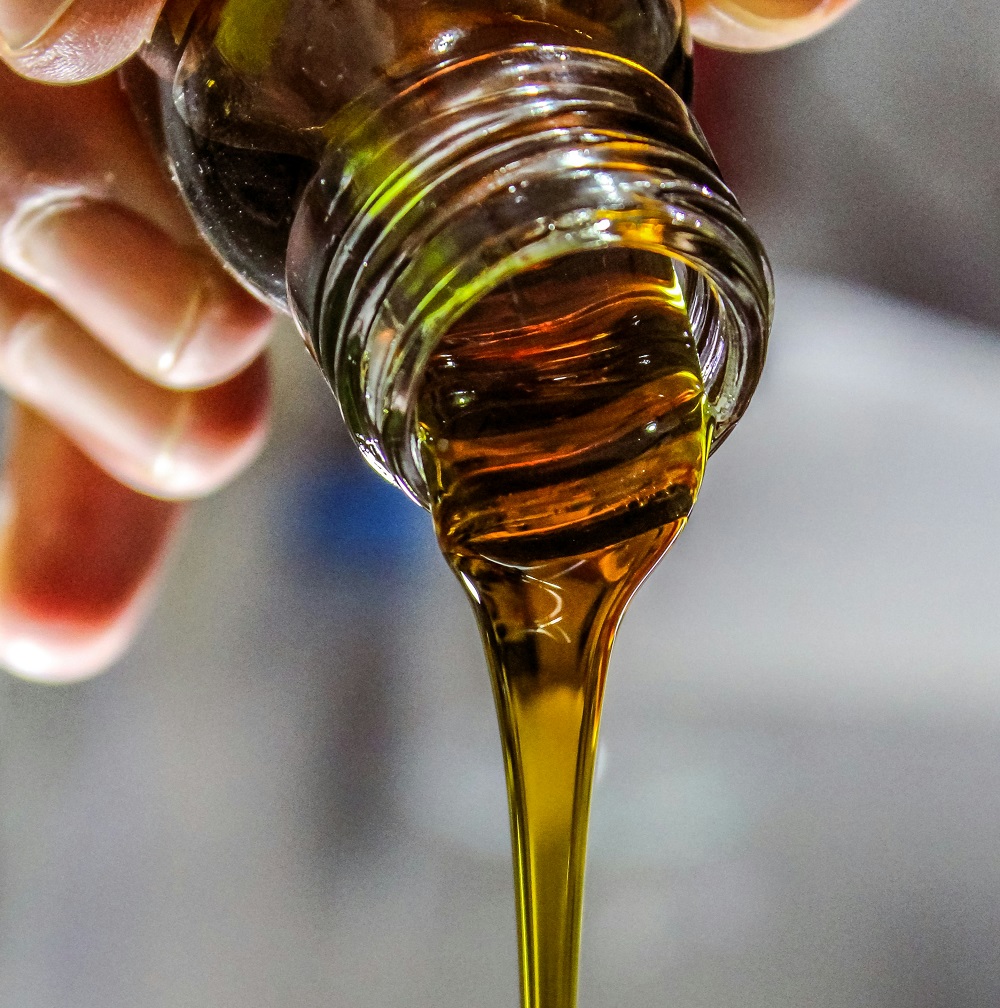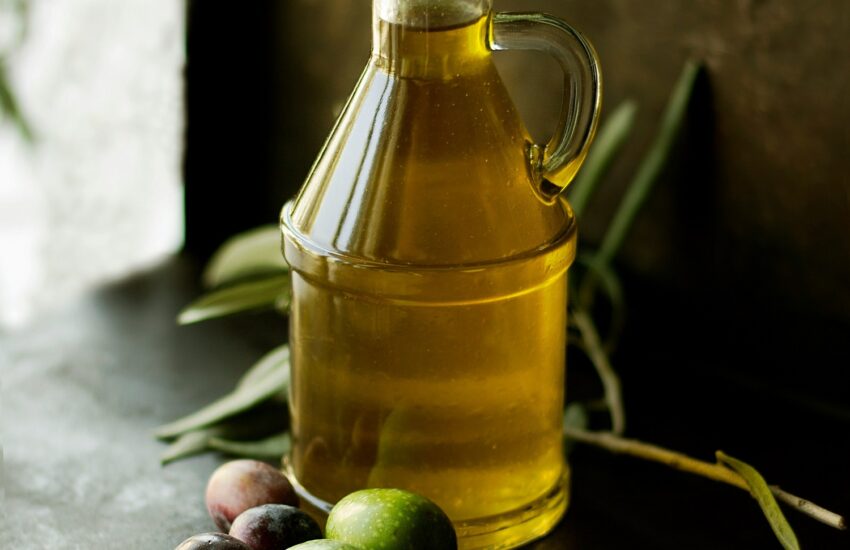Olive oil, often referred to as “liquid gold,” is one of the healthiest oils available, widely recognized for its heart-healthy benefits. But did you know that it can also play a significant role in weight loss? Olive oil contains beneficial nutrients, including monounsaturated fats, antioxidants, and anti-inflammatory properties that can enhance the body’s fat-burning processes. This article will explore how incorporating olive oil into your diet can help with weight loss, the science behind its benefits, how to use it effectively, and practical tips for making olive oil a part of your everyday meals. How to Use Olive Oil for Weight Loss – Mohit Tandon USA
The Science Behind Olive Oil and Weight Loss
– The Nutritional Profile of Olive Oil
Olive oil is high in monounsaturated fats, particularly oleic acid, which is known for promoting fat breakdown in the body. It is also rich in antioxidants such as vitamin E and polyphenols, which can reduce inflammation and oxidative stress—two factors often linked to weight gain. These properties make olive oil a powerful tool for improving metabolism and enhancing the body’s ability to burn fat.
– Olive Oil and Satiety
Olive oil is calorie-dense, but it can help increase feelings of fullness when used in moderation. Including it in your meals can reduce overall calorie intake by helping you feel satisfied faster, thus preventing overeating. This satiety effect makes it easier to stick to a calorie deficit for weight loss without feeling deprived. – Mohit Tandon USA
– Anti-Inflammatory Effects
Chronic inflammation is linked to obesity and metabolic disorders. The anti-inflammatory compounds in olive oil, such as oleocanthal, can help reduce inflammation in the body, improving insulin sensitivity and promoting fat burning. This may lead to easier weight management and reduced fat storage.
The Role of Monounsaturated Fats in Weight Loss
– Understanding Monounsaturated Fats
Monounsaturated fats are healthy fats that are liquid at room temperature. Unlike trans fats and saturated fats, which can contribute to weight gain and cardiovascular issues, monounsaturated fats support healthy cholesterol levels and contribute to fat burning. Olive oil is one of the best sources of these beneficial fats.
– How Monounsaturated Fats Aid Weight Loss
Research has shown that diets high in monounsaturated fats can improve fat oxidation, meaning the body is better able to burn fat for energy. Additionally, replacing saturated fats with monounsaturated fats, like those found in olive oil, may help reduce overall body fat, particularly visceral fat, which is the harmful fat around internal organs.
– Olive Oil and Belly Fat Reduction
Belly fat is often the most stubborn type of fat to lose, but studies have suggested that olive oil may help reduce abdominal fat. Incorporating olive oil into meals may not only help reduce overall body fat but specifically target the fat around the belly area, promoting a leaner body composition.
How to Incorporate Olive Oil into Your Diet
– Olive Oil as a Cooking Medium
One of the easiest ways to incorporate olive oil into your diet is by using it as a cooking oil. Unlike some oils, olive oil is stable at moderate heat, making it suitable for stir-frying, grilling, roasting, and sautéing. Using olive oil in cooking can add flavor to meals without the need for excessive salt or unhealthy fats.
– Using Olive Oil in Salads
Olive oil is an excellent addition to salads, acting as both a dressing and a healthy fat source. You can make a simple vinaigrette by mixing olive oil with vinegar or lemon juice, along with herbs and spices. This can add flavor to your meals while helping you stay full and satisfied.
– Drizzling Olive Oil on Vegetables and Grains
A drizzle of olive oil over roasted vegetables, whole grains like quinoa or brown rice, or pasta can enhance the nutritional value of your meals. Pairing olive oil with fiber-rich foods can slow digestion, helping you feel fuller for longer.
– Olive Oil in Smoothies
Adding a tablespoon of olive oil to your smoothie can be an easy and effective way to include more healthy fats in your diet. The creamy texture of olive oil will blend smoothly with fruits, vegetables, and other ingredients, and the healthy fats will help keep you satiated throughout the day.

The Benefits of Extra Virgin Olive Oil for Weight Loss
– What Makes Extra Virgin Olive Oil Special?
Extra virgin olive oil (EVOO) is the highest quality olive oil, made by cold-pressing olives without the use of heat or chemicals. EVOO retains the most antioxidants and nutrients, making it the best choice for health benefits, including weight loss.
– Antioxidants and Weight Loss
The antioxidants in extra virgin olive oil, such as polyphenols, have been shown to enhance fat metabolism and reduce fat accumulation in the body. These compounds may also protect the liver from fat buildup and improve overall metabolic function.
– EVOO and Fat Burning
Extra virgin olive oil can activate genes responsible for fat breakdown and may even increase the body’s ability to burn fat during exercise. Studies have shown that those who include EVOO in their diets tend to have lower levels of body fat than those who consume other types of fats.
Olive Oil and Exercise for Enhanced Weight Loss
– The Synergy of Olive Oil and Physical Activity
While olive oil is a powerful ally in weight loss, combining it with regular exercise can amplify its effects. Olive oil’s fat-burning properties can help provide sustained energy during workouts, improving endurance and performance. Moreover, regular exercise enhances the body’s ability to metabolize the healthy fats from olive oil.
– Timing Olive Oil Consumption with Workouts
Consuming olive oil prior to a workout can provide a slow-releasing energy source, keeping you fueled during long sessions. You can add a tablespoon of olive oil to a pre-workout smoothie or meal, ensuring that your body has the energy to perform at its best.
Dosage and Considerations for Using Olive Oil for Weight Loss
– How Much Olive Oil Should You Use?
While olive oil is beneficial, moderation is key. A typical serving is about one to two tablespoons per day. Excessive consumption may lead to an increase in caloric intake, so it’s important to balance it within your daily calorie allowance.
– Potential Side Effects and Cautions
Although olive oil is generally safe, excessive consumption may lead to unwanted weight gain due to its high-calorie content. Additionally, individuals with olive oil allergies should avoid using it. As with any dietary change, it’s essential to consult with a healthcare provider if you have underlying health conditions.
Olive Oil in Popular Diets for Weight Loss
– Mediterranean Diet and Olive Oil
The Mediterranean diet, which is rich in olive oil, has long been associated with weight loss and improved health. This diet emphasizes whole grains, fresh vegetables, fruits, legumes, and healthy fats, including olive oil. It has been shown to promote weight loss while improving heart health and longevity.
– Olive Oil in Low-Carb and Ketogenic Diets
Olive oil is a staple in low-carb and ketogenic diets because it is rich in fats and low in carbohydrates. When used appropriately, it can help individuals maintain a state of ketosis while providing essential nutrients for overall health.
– The Role of Olive Oil in Intermittent Fasting
Olive oil can also be beneficial for those practicing intermittent fasting. Consuming olive oil during eating windows can help maintain energy levels while supporting fat-burning processes. Its satiety effects can make it easier to stick to fasting periods without feeling overly hungry.– Mohit Tandon USA
Success Stories and Testimonials
In this section, you would include real-life examples and success stories of individuals who have successfully incorporated olive oil into their weight loss routines. These personal stories can provide motivation and inspiration for readers.
Conclusion
Olive oil is not just a flavorful addition to your meals—it can also be a powerful ally in your weight loss journey. By understanding its nutritional profile and benefits, and using it correctly in your diet, you can take advantage of its fat-burning and satiety-promoting properties. Whether you’re cooking, dressing salads, or adding it to smoothies, olive oil can be a versatile tool in helping you achieve your weight loss goals in a healthy, sustainable way.
